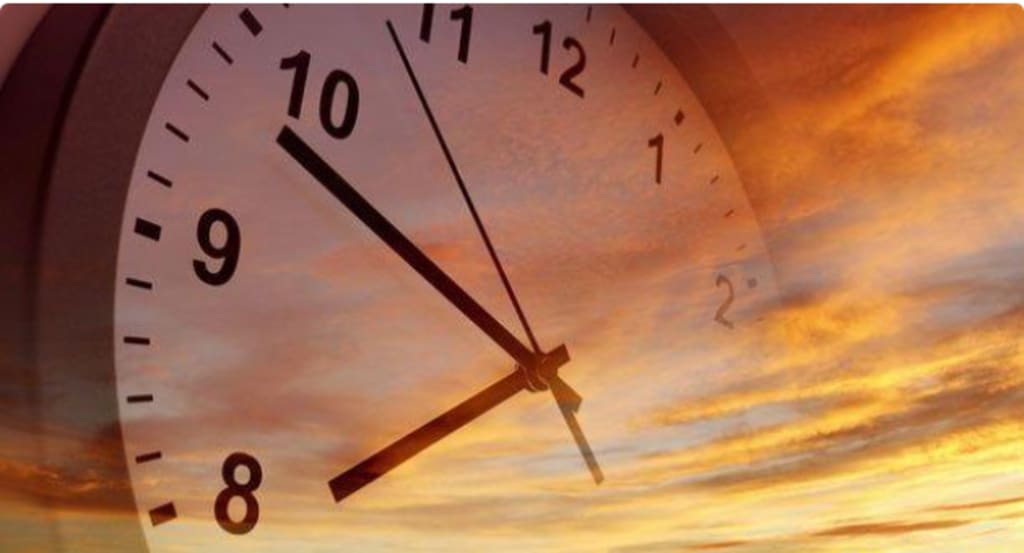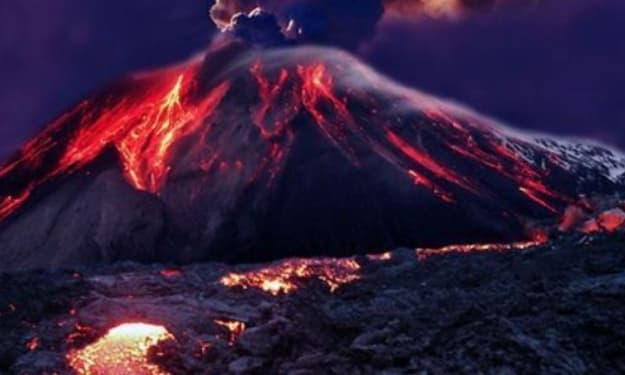Pomegranate revisited: everything you've experienced could happen again in the future!
Poincaré's theorem

We've talked about entropy before, extending Boltzmann's brain in the context of entropy. (I haven't read it yet, so for those interested, feel free to read my previous post.) The reproduction of Poincaré is also related to entropy. It may seem to conflict with the principle of entropy increase, but it does not.
As usual, let's start with an introduction to Poincaré, who proposed this theorem. Poincaré, whose full name was Jules Henri Poincaré. One of the greatest French mathematicians, celestial mechanics, mathematical physicists, theoretical scientists, and philosophers of science. Recognized as the premier mathematician of the last quarter of the 19th century and the beginning of the 20th century, Poincaré was the last mathematician, after Gauss, to develop a comprehensive understanding of mathematics and its applications. The outstanding work in mathematics had a profound impact on mathematics. His work on celestial mechanics was a milestone after Newton, and he is recognized as a theoretical pioneer of relativity for his work on the theory of electrons.
Poincaré's theorem is also known as Poincaré's recurrence, Poincaré's return, and Poincaré's recurrence. It is said that mechanical systems always return to their initial state after a sufficiently long period. That is, everything in the whole system may return to its original state. Here I introduce the H-theorem, also of mechanics, to replace the entropy increase principle and Poncelet's theorem for comparison. Boltzmann proposed that systems in non-equilibrium always tend monotonically toward equilibrium and that systems that have reached equilibrium cannot automatically tend toward non-equilibrium. So therein lies the conflict. One theorem says that recovery is impossible, and the other says that it is possible. But why not? Because the precondition is long enough. How long is this long enough? Sorry, I can't answer that.
From a microscopic point of view, in a system in which all the particles are in constant motion at irregular intervals, there is always a part that will return to its original position. But the probability that all the particles will return to their original positions can be described as infinitesimal.
It would be more intuitive to express this in macroscopic terms. In simple terms, say 2 balls are drawn from a box and not put back. Then there are two possibilities, either 1 or 2. Suppose you draw 1 and then 2 in the first round. in the second round, it's still 1 and then 2. then it will come up again. If you always draw 2 and then 1 in the second round, and only 1 and then 2 in the fourth round, then the recurrence will happen. So I don't know when it will reappear, but it might.
Take yourself as an example. Now, your birth is the starting point, your whole life ends and the whole universe moves forward for an unknown period. At some point, there is a condition that is the same as when you were born now (that is, the whole universe, the social environment, your parents, etc.) and you are reborn again. This would have to be identical in every way, even if one condition was in any way off, it would not be considered a re-birth. I don't know if that is impossible.
If one condition is added and the reproduced you is the same as the present you, it is certain that the universe experienced a different life for you than the present you. There should be countless deviations in your life. This must not happen again. However, we exist in a universe where "nothing is absolute". Given enough time, nothing is impossible. The most important thing is that you cannot prove that it could be right or wrong.
Just like that, everything in the world has been decided and everything seems to have been written. No matter what we do or think, it is a foregone conclusion. Simply put, it's like a movie that keeps playing, and we are our protagonists in the movie, we just follow the progress bar on a loop.
But what if the ending is written? The point is that you don't know how you're going to end up. You are experiencing your own life, not watching your own 'film'. You can still decide everything for yourself. All the decisions you make are your experiences.
With the entropy principle and Boltzmann's brain mentioned in the first two articles, even if everything in the world is going in a general direction, we still have the power to slow it down. Even if we are just a consciousness, we may create the universe ourselves. To combine is to live in the present moment. What I have said in all three of these articles could be true or it could be false. Because we can't prove it with facts. They are beyond our power, but why do we need to know? Because we need to be aware of it and be calm about it.
I think it is a summary of the main points :
1. The reappearance of Poincaré is also related to entropy. It may seem to conflict with the principle of entropy increase, but it doesn't.
2. Pengalle, full name Jules-Henri Poincaré. One of the greatest French mathematicians, celestial mechanics, mathematical physicists, theoretical scientists, and philosophers of science. Widely regarded as the premier mathematician of the last quarter of the 19th century and the beginning of the 20th century, Poincaré was the last mathematician after Gauss to develop a comprehensive understanding of mathematics and its applications. The outstanding work in mathematics had a profound impact on mathematics. His work on celestial mechanics was a milestone after Newton, and he is recognized as a theoretical pioneer of relativity for his work on the theory of electrons.
3. The meaning of Poincaré's theorem is that mechanical systems always return to their initial state after a sufficiently long period. The same is true of the H-theorem of mechanics, but it says that a system in a state of disequilibrium always tends monotonically to equilibrium and that a system that has reached equilibrium cannot automatically tend to disequilibrium again. The reason they are not contradictory is that Poincaré's theorem is based on a very long time horizon.
4. At the microscopic level, it is always possible for the particles in a system to move to their initial positions, but Poncelet's theorem says that all particles revert to their initial positions and start again on their original trajectories.
5. Macroscopically, take the example you know. You were born dead and the universe has no idea how long it has been. There is another situation exactly like the one you are in now. You have been reborn and are living your life all over again.
6. We exist in a universe where "nothing is absolute". Nothing is impossible if it lasts long enough. The most important thing is that you cannot prove that it could be right or wrong.
7. Think of it this way: everything in the world is already decided, everything seems to be written. No matter what we do or think, it is a foregone conclusion.
8. Even if the ending is written, you can still decide everything for yourself. We don't know if they are true or not, we can't prove them, we can't even touch them. But we still need to be aware and calm about it.
About the Creator
Derwall Don
The development of science and technology and the function is inexhaustible, science is a wonderful thing。






Comments
There are no comments for this story
Be the first to respond and start the conversation.